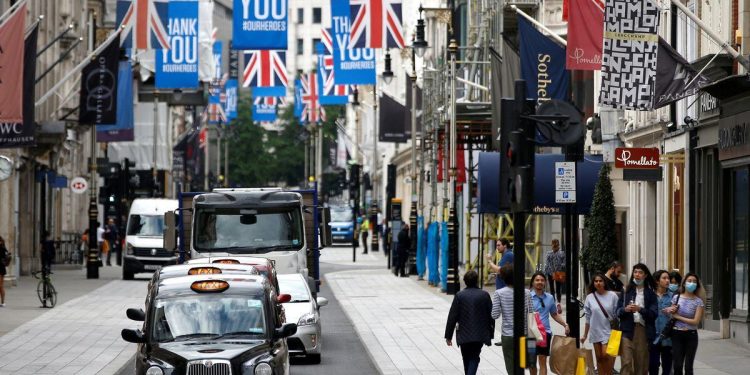The United Kingdom’s economic growth came to a standstill in the third quarter of 2023, facing the dual challenges of soaring interest rates and inflation that significantly impacted consumer spending. According to the Office for National Statistics (ONS), the UK’s real Gross Domestic Product (GDP) showed no growth in Q3-23, reporting a 0.0% quarter-on-quarter (q/q) change, compared to a modest 0.2% q/q increase in the previous quarter (Q2-23).
A detailed analysis revealed declines across key economic indicators, with gross fixed capital formation, private consumption, and general government expenditure all experiencing contractions of -2.0% q/q, -0.4% q/q, and -0.5% q/q, respectively.
These negative trends contrasted with the positive figures seen in the second quarter (Q2-23), reflecting the profound impact of tightening financial conditions and heightened inflationary pressures.
Similarly, on a year-on-year basis, the overall economic growth remained stagnant at 0.6%, mirroring the figures from Q2-23. The dynamics at play included an upturn in housing expenditures by +0.7% y/y, a deceleration in public expenditure by +0.1% y/y, and a notable decline in business investment by +2.8% y/y, compared to the robust +9.2% y/y seen in the previous quarter.
Looking forward, the UK anticipates continued challenges as tight financial conditions and persistently high inflation pose significant risks to short-term growth prospects.
The International Monetary Fund (IMF) has forecasted a 0.7% contraction in the UK economy for 2023, signaling a marked slowdown compared to the 3.3% year-on-year growth recorded in the previous fiscal year (2022FY). The outlook underscores the need for strategic economic measures to navigate the complexities of the current financial landscape and reignite growth in the UK.















